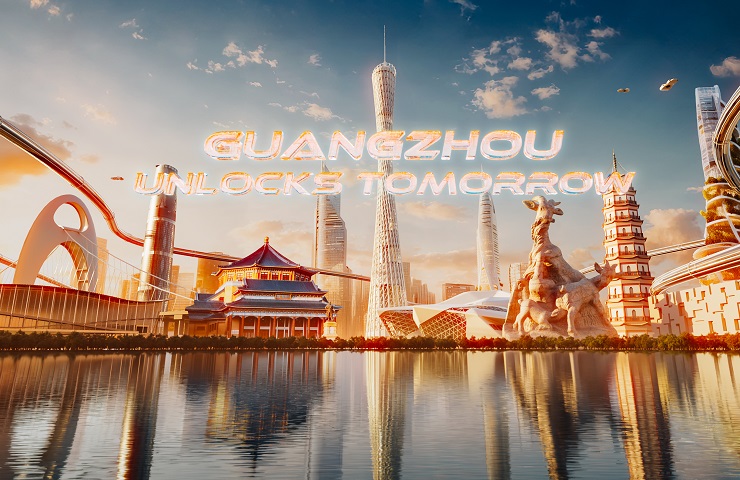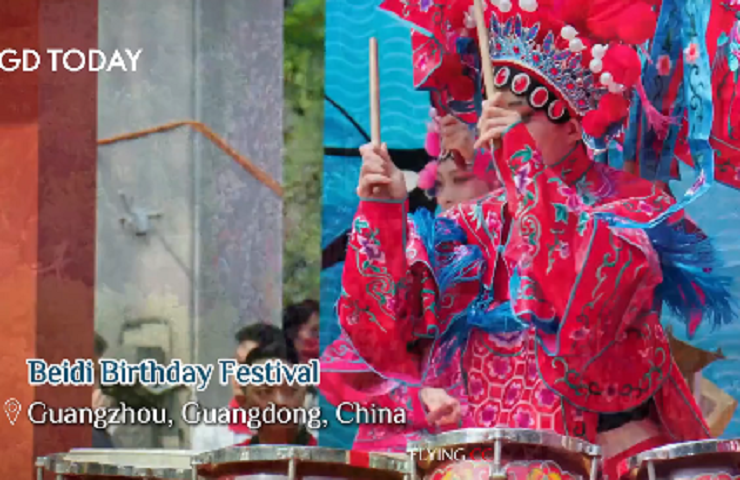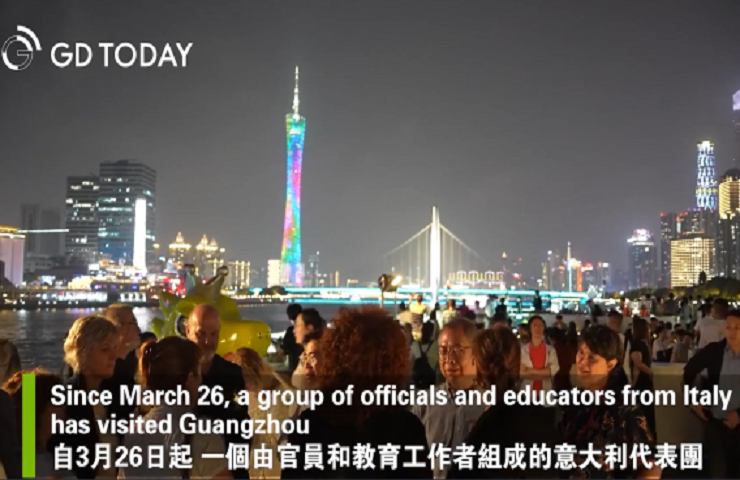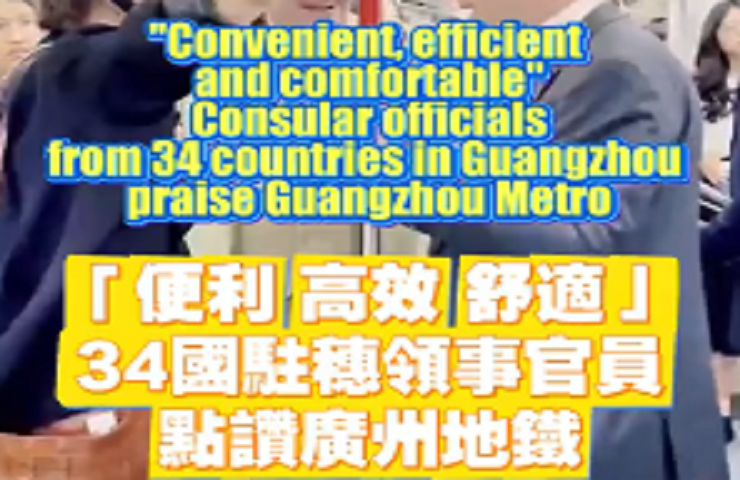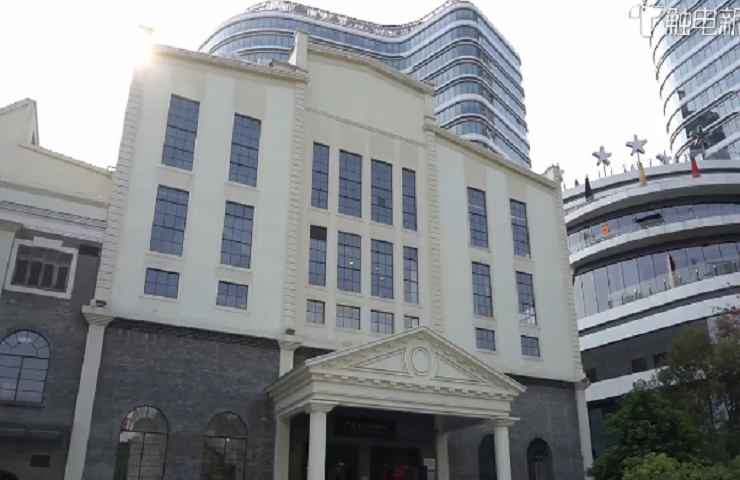Guangzhou Knowledge City shaping up to be regional powerhouse
China-Singapore Guangzhou Knowledge City, a bilateral State-level cooperation project, has made progress in building itself into a national knowledge center with global influence under the guidelines of Overall Development Plan for CSGKC (2020-35), said local officials.
According to the plan, which was approved by the State Council in August last year, CSGKC is to be a hub of new knowledge and creation, a gathering place of global talent, a demonstration zone of opening-up and cooperation and a driver of high-quality development in the Guangdong-Hong Kong-Macao Greater Bay Area. It will also be a powerhouse to support high-quality development of the Greater Bay Area during 2020-35.
"CSGKC has achieved outstanding results in implementing the overall development plan, supporting industrial development, promoting innovation, boosting opening-up and cooperation and constructing a smart city over the last year," said Xian Yinsong, deputy secretary of the Party working committee of Guangzhou Development District. Xian attended a seminar on Tuesday to exchange opinions with experts on the future development of CSGKC.
According to Xian, 290 projects with a combined contractual investment of 573.6 billion yuan ($88.4 billion) have settled in CSGKC over the past year. A raft of big names-including smart vehicle maker Xpeng Motors and high-tech enterprise Cone Technology-have signed up with CSGKC. Procter & Gamble's smart manufacturing center and the first phase of InnoCare Pharma were among 21 projects that came into operation.
So far, more than 20 of China's leading research institutes, including the Chinese Academy of Sciences, the Chinese Academy of Social Sciences and Nanyang Technological University of Singapore, have set up branches in CSGKC to promote independent innovation.
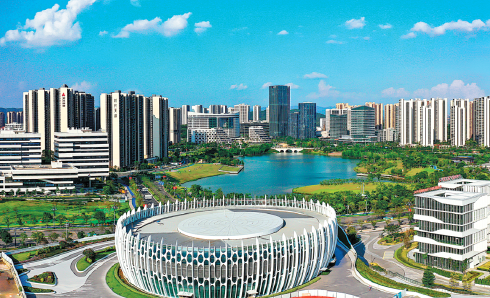
A bird's eye view of China-Singapore Guangzhou Knowledge City, which will be developed into a national knowledge center by 2035. CHINA DAILY
In 2020, 22,612 patents developed in CSGKC were registered, a 28.16 percent year-on-year increase from 2019, making CSGKC a regional knowledge center.
The knowledge city is striving to expand its talent pool and has established several service platforms to retain skilled workers. According to Xian, more than 100 prestigious Chinese scientists and academicians, including Zhong Nanshan, Zhang Boli and Shi Yigong, have set up laboratories in CSGKC.
The knowledge city is home to 1,151 government-recognized high-caliber professionals. More than 3,400 postgraduate students will undertake programs in the upcoming autumn semester in the region.
Leveraging the close partnership with Singapore and opportunities arising from the Greater Bay Area, CGSKC, which celebrated its 10th anniversary last year, has grown into a core platform of science and technology innovation in Guangzhou.
The construction of a China-Singapore international scientific innovation cooperation demonstration zone, which spans 2 square kilometers, kicked off in September last year and marked the beginning of the second phase of CSGKC.
According to Xian, 12 China-Singapore cooperative projects have agreed to settle in the second phase. They include SP Group, the National University of Singapore's Guangzhou innovation research institute and SGP International Management Academy.
The infrastructure in CSGKC is improving and features better-connected transport networks, a smarter sponge city, more green buildings and a city information modeling platform which can support smart driving in urban areas. More than 10 million square meters of land was repurposed for the knowledge city's construction.
Looking ahead, CSGKC will spare no effort to serve what is required by the guidelines, said Zhou Yawei, member of the standing committee of the CPC Guangzhou municipal Committee, secretary of the CPC Guangzhou development district working committee, and Director of the administrative committee of CSGKC.
The management of CSGKC will prioritize the business environment improvements to ensure companies and institutes can focus on innovation and development.
Forward-looking areas-such as integrated circuits, smart manufacturing, next-generation information technology and biopharmaceuticals-will stay the focus of the knowledge city, Zhou said.
Apart from promoting the second phase, efforts will be made to consolidate the results generated in the first phase of CSGKC. For instance, the China-Singapore International Joint Research Institute will have at least three global innovation centers in the next five years. Also, the construction of the 330-meter-high Knowledge Tower, a landmark office building set for completion in 2024, will be pushed forward.
Copyright © Foreign Affairs Office of Guangzhou Municipal Government,
Hong Kong and Macao Affairs Office of Guangzhou Municipal Government All rights reserved.
Presented by China Daily.
京ICP备13028878号-28





